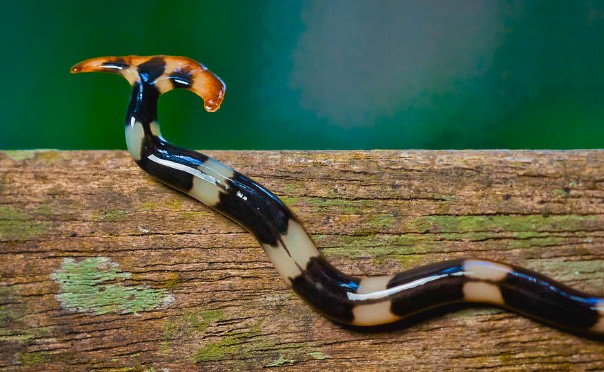 Parler
Parler Gab
Gab
- Chengxuan Han, a CCP member and doctoral student from Wuhan's Huazhong University, was arrested at Detroit Airport for smuggling undocumented biological materials (roundworm-related petri dishes, DNA plasmids) into the U.S. while lying to customs about the contents.
- Han deleted her device data before arrival, claiming she wanted to "start afresh." She concealed her CCP affiliation and shipped five to 10 suspicious packages labeled as "surprises" to unwitting recipients, some lost in transit.
- The case reflects growing U.S. concerns about foreign interference in academia, following similar charges against Chinese nationals smuggling harmful biological materials (e.g., crop-killing fungi). Prosecutors called it part of a Beijing-backed smuggling threat.
- Han's university is near the Wuhan Institute of Virology, fueling scrutiny amid unresolved debates about COVID-19's origins. The case underscores tensions over intellectual property theft and biosecurity risks.
- Han initially failed to secure a visa due to poor English but was approved days later after suddenly speaking "credibly" about her research. Officials warn such actions undermine legitimate academic work and pose public safety threats.
From campus to crime: How Chinese researchers exploit U.S. universities
The case marked the latest in a series of cases raising alarms about foreign interference in American academia. It followed recent charges against two other Chinese nationals accused of smuggling a crop-killing fungus, underscoring growing scrutiny of foreign researchers suspected of exploiting U.S. academic collaborations. (Related: Chinese nationals charged with smuggling potential agroterrorism fungus into the U.S.) Jerome Gorgon, U.S. attorney for the Eastern District of Michigan, called Han's actions "part of an alarming pattern that threatens our security." He emphasized that American taxpayers should not fund "a [People's Republic of China]-based smuggling operation" at public institutions. Historical context adds weight to the allegations: HUST has faced prior scrutiny due to its proximity to the Wuhan Institute of Virology, which was central to debates about the origins of the Wuhan coronavirus (COVID-19). The case also reflects escalating U.S.-China tensions over intellectual property theft, with universities increasingly seen as soft targets for espionage. In 2020, the U.S. Department of Justice launched the "China Initiative" to counter economic espionage. Critics denounced the endeavor, arguing it fueled racial profiling – a claim officials deny, citing documented cases of Chinese researchers concealing their ties to the CCP and the People's Liberation Army. Han's visa approval raises further questions. Initially rejected for poor English proficiency, she secured a J-1 visa days later after "speak[ing] credibly" about her research. Her work, focused on roundworm neural circuits, aligns with broader biological studies – but prosecutors argue the clandestine shipments violated clear import rules. John Nowak, acting Customs and Border Protection director of field operations, warned that such actions "undermine the legitimate work of other visiting scholars." Meanwhile, Cheyvoryea Gibson, FBI special agent in charge for the bureau's Detroit office, dubbed the smuggling a "direct threat to public safety." As Han awaits potential indictment, her case highlights the delicate balance between academic collaboration and national security. With China's aggressive pursuit of biotechnology dominance, U.S. officials vow heightened vigilance. Watch China affairs expert Gordon Chang explaining that the smuggling of a crop-killing fungus into America is part of a concerted effort by Beijing against Washington. This video is from the NewsClips channel on Brighteon.com.More related stories:
Secret scheme to smuggle deadly toxins from University of Florida to China BUSTED. Communist China caught smuggling tens of thousands of weapons parts into America to arm BLM. Harvard professor arrested for conspiring with Chinese spies to smuggle "biological material" into communist China. Sources include: ZeroHedge.com TheEpochTimes.com Justice.gov Brighteon.comIran strikes Israeli hospital and stock exchange as Netanyahu vows retaliation
By Cassie B. // Share
BRICS nations forge new world order as west’s economic collapse accelerates
By Finn Heartley // Share
The specter of a NUCLEAR WORLD WAR 3 looming large on the June horizon
By News Editors // Share
Israel’s unprecedented offensive on Iran signals regime change plot, backed by US war hawks
By Lance D Johnson // Share
Governments continue to obscure COVID-19 vaccine data amid rising concerns over excess deaths
By patricklewis // Share
Tech giant Microsoft backs EXTINCTION with its support of carbon capture programs
By ramontomeydw // Share
Germany to resume arms exports to Israel despite repeated ceasefire violations
By isabelle // Share










